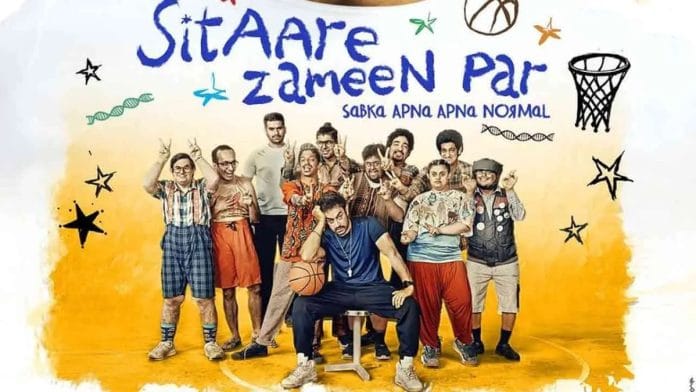New Delhi: Aamir Khan’s Sitaare Zameen Par has just released, and its ensemble cast of neurodivergent actors is already making waves. The film has been cast by Tess Joseph—of The White Tiger and The Namesake fame—who led a painstaking, months-long search to find the right actors for the project; a process that led her to question her own idea of what ‘normal’ means.
“With neurodivergent kids and community, more than learning —I found unlearning. ‘Normal’ is such an elastic word pulling across us. What is normal for me may be different for you, and I learned to meet people where they are, not where we expect them to be,” Joseph told ThePrint. The movie, released on 20 June, has been directed by RS Prasanna, known for helming Shubh Mangal Saavdhan (2017).
The film stars neurodivergent actors from all across the country: Rishabh Jain, who plays Raju, is from Bengaluru; Gopi Krishnan Verma, who plays Guddu, is from Kerala; Naman Misra, who plays Hargovind, is from Delhi, and Samvit Desai, who plays Karim, is from Mumbai.
A spiritual sequel to Aamir Khan’s Taare Zameen Par (2007) and a remake of the Spanish film Campeones (2018), Sitaare Zameen Par follows a bitter basketball coach who must help a team of intellectually disabled players win a tournament.
Casting journey
Casting for Sitaare Zameen Tess was a meticulous process, recalls Tess Joseph. They first watched the Spanish film, and had it translated to help with casting.
“What moved me most was the behind-the-scenes footage. I wanted to understand how they built such care into their casting. That led me to do a workshop with Bus Stop Films in Australia, to learn what it truly means to support and collaborate with neurodivergent talent,” said Joseph.
This was followed by an open casting call. Hopeful actors were asked to send videos enacting their favourite scene from a movie, and dancing. And before Joseph and her team could realise it, a thousand auditions had come their way. The team also brought on board Dr Nina Vaidya, an expert in the development of children with Down Syndrome, to guide them.
Most of them were first-timers, and it took 10 months to finalise the cast. After the initial round of auditions, Joseph and her team held Zoom conversations with the selected actors along with improv workshops, which included dribbling basketballs and running. One team member even made a Google form to understand and keep track of each actor’s food and general habits, timings and preferences, and physical boundaries.
“Prasanna and Aamir weren’t just involved—they were invested. This was not one of those “send us options” films. They were deeply collaborative. Prasanna, especially—he watched every tape, gave patient, precise feedback,” recalled Joseph.
Diversity in film casting
Tess Joseph has been vocal about promoting diversity and inclusivity in casting, consistently trying to give newcomers a chance. For Sitaare Zameen Par, Joseph and her team worked at the actors’ pace, reworking how they communicated. It was a reiteration of her own casting philosophy–the film should adapt to the actor, not the other way around.
Parents were involved in the audition process too, and met with Joseph and the rest of the cast and crew.
“The mothers sent me messages about how it has been a life-changing experience, and how they continue to connect (with other parents from the film’s cast). I remember one actor, Rishabh, wrote a letter to me after the workshop we had conducted,” said Joseph.
The film opened to positive reviews and has collected Rs 32.2 crore in two days.
“The question is—are we ready to tell more stories? If we treat this film as a one-off, we fail. But if we treat it as a lighthouse—as Prasanna and Aamir did—then maybe, just maybe, we begin to change course. Because the stars (sitaare) are here. We just need to look up.”
(Edited by Zoya Bhatti)






